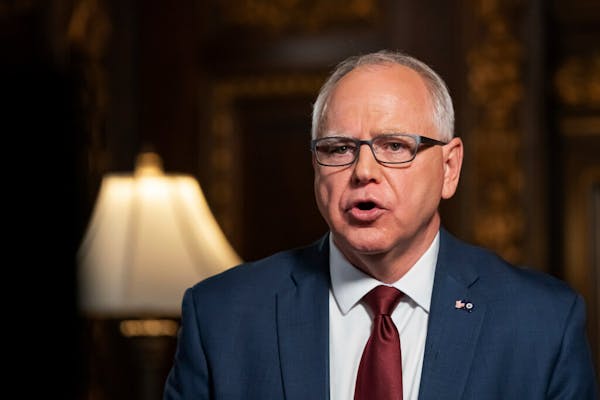Minnesota's divided Legislature this week managed something that its national counterpart in Washington, D.C., has yet to do: strike a deal to send relief to businesses and workers hit hardest by the ongoing COVID-19 pandemic.
Now comes the hard part.
As soon as Gov. Tim Walz signs the bill, state and local officials must identify and dole out hundreds of millions of dollars to thousands of businesses across the state. They need to extend unemployment insurance to more than 100,000 Minnesotans whose benefits are set to expire after the holidays. And they need to do it as quickly as possible.
To accomplish that, officials are taking ideas from other states and the federal government to set up their own system to automatically send a quick burst of relief to businesses that qualify, followed by a second round of locally directed aid that aims to fill in the gaps.
"The first round of checks prioritizes speed over perfection," said Ben Wogsland of Hospitality Minnesota, the restaurant and lodging trade group that worked with lawmakers to craft the final deal. "We agreed with the legislators that were helping design this that you can't let the perfect be the enemy of the good."
Under the relief package, up to $88 million will be distributed by the state Department of Revenue, which will use tax records to identify bars, restaurants, bowling alleys, breweries, coffee shops and some fitness centers that have seen at least a 30% drop in sales revenue from last year.
Checks ranging from $10,000 to $45,000 — depending on the number of employees — will be sent automatically to those businesses by the end of December or early January. The Revenue Department estimates that 5,800 businesses in the state will qualify for this bucket of relief.
That first round of aid is meant to quickly target businesses hit hardest by Walz's Nov. 18 order closing bars, restaurants, entertainment venues and fitness centers. A spokesman for Walz said bars and restaurants will remain closed for indoor service through the holidays. An order closing bars and restaurants was originally slated to expire on Friday. Walz will roll out other details on theaters and fitness centers on Wednesday.
Members of both parties acknowledged that the automatic nature of the system could put taxpayer relief in the hands of some of the 100 to 200 businesses that have vowed to open in defiance of Walz's executive order.
Businesses found in violation of the law "will have to pay civil penalties and deal with the attorney general's office," said DFL House Speaker Melissa Hortman. "Is there a situation where a business could get [relief] money and then pay it to their attorney to fight the attorney general? I suppose that's possible."
A smaller $14 million pot of funding will be spread out among 146 movie theaters across the state and regional convention centers, which must apply for relief through the Department of Employment and Economic Development (DEED).
The largest portion of funding in the relief package — $114.8 million — will go directly to Minnesota's 87 counties, which will decide on the businesses in their communities that are deserving of relief and might have been missed in the first round of funding. That includes hotels, music venues, nonprofits or restaurants that don't have enough tax data on file to qualify for the automatic checks.
Matthew Hilgart with the Association of Minnesota Counties said that shortly after the bill passed he was contacted by a restaurant that opened in February, just before the pandemic hit. The owner said they hadn't been able to qualify for state or federal aid because the restaurant hadn't yet generated enough of a sales tax base.
"This is meant as a catchall," said Hilgart. "We're going to miss people, and that's where this county round comes in. We can help as much we can, because it's still a limited amount of money."
That round of relief, however, could come slower for businesses. Counties have until March 15 to distribute all their funds, though Hilgart said most expect to send relief to businesses ahead of that deadline.
The key to passing the relief bill in the Legislature was extending unemployment benefits to state workers who had exhausted their regular benefits and have been receiving payments through a 13-week federal extension.
But that program is set to expire the day after Christmas. In addition, another 15,000 or so Minnesotans who have been receiving extended benefits through a program triggered by a rise in the unemployment rate were expected to lose those benefits at the end of this week.
Both groups will be eligible for the new 13-week state extension that starts on Dec. 27 and runs through April 10. Checks will average $400 per week.
"This is just basic [unemployment insurance] benefits for Minnesotans who need it going into a cold winter when the job market is tough," said DEED Commissioner Steve Grove.
However, about 40,000 gig workers and small-business owners who have been receiving unemployment payments through the federal Pandemic Unemployment Assistance program will be ineligible for the state extension. Grove said states don't have the ability to extend that assistance.
Grove and others remained hopeful the federal government will strike a deal soon that includes a longer extension of unemployment benefits for workers. If that happens, Minnesota's unemployment benefit will blink off.
Staff writer Kavita Kumar contributed to this report.

